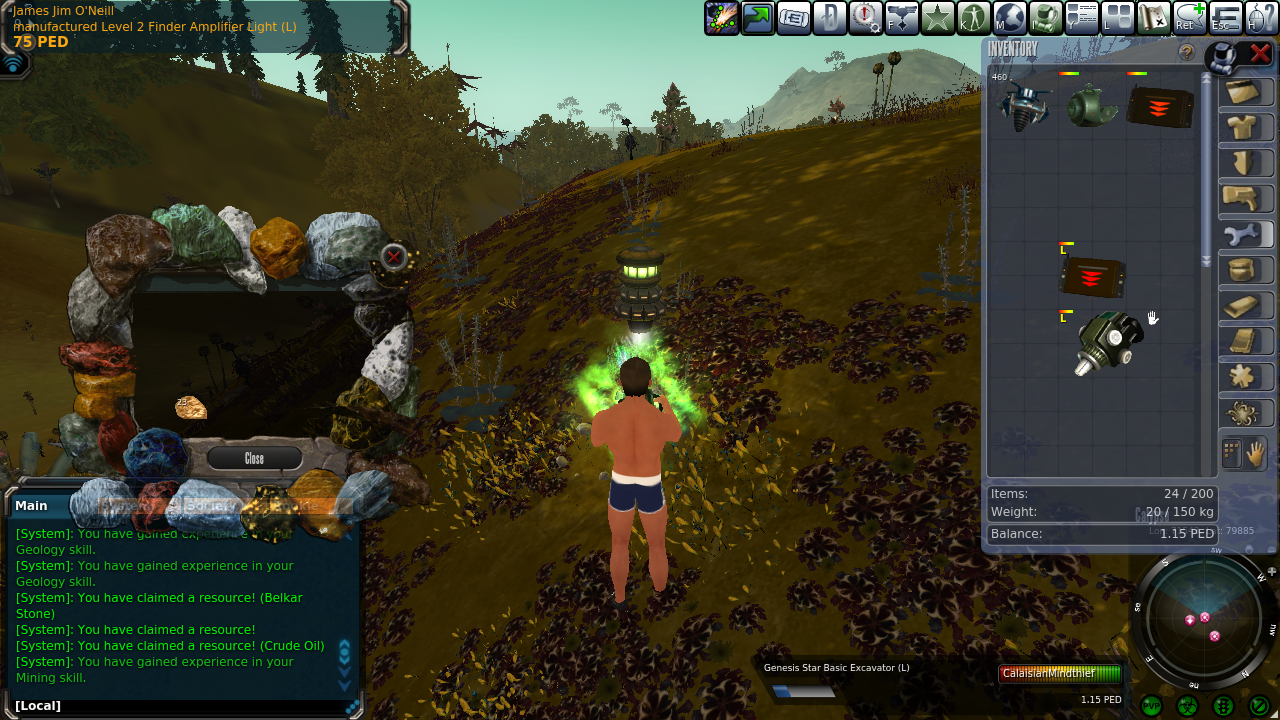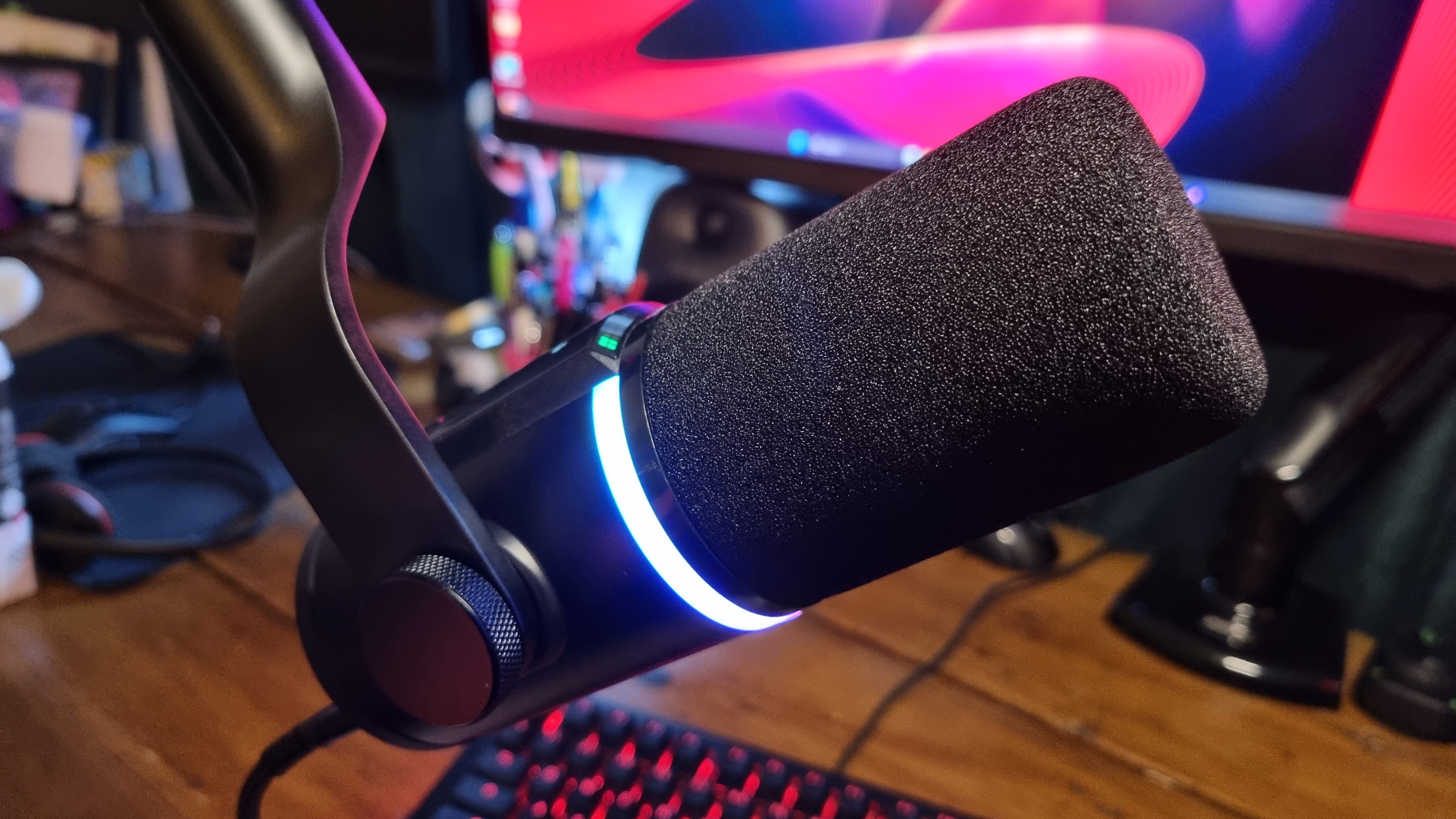Before blockchain and NFTs, there was the real-cash MMO Entropia Universe
For almost 20 years, Entropia players have been grinding, gambling, and selling virtual real estate to earn real dollars.
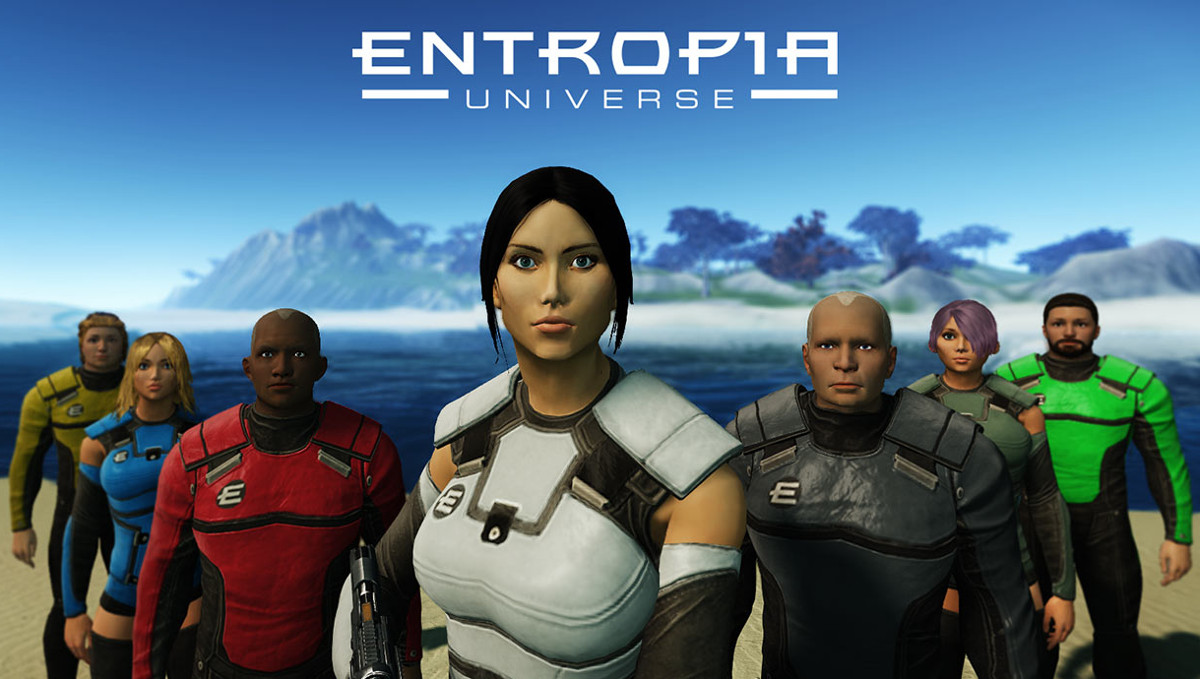
Keep up to date with the most important stories and the best deals, as picked by the PC Gamer team.
You are now subscribed
Your newsletter sign-up was successful
Want to add more newsletters?

Every Friday
GamesRadar+
Your weekly update on everything you could ever want to know about the games you already love, games we know you're going to love in the near future, and tales from the communities that surround them.

Every Thursday
GTA 6 O'clock
Our special GTA 6 newsletter, with breaking news, insider info, and rumor analysis from the award-winning GTA 6 O'clock experts.

Every Friday
Knowledge
From the creators of Edge: A weekly videogame industry newsletter with analysis from expert writers, guidance from professionals, and insight into what's on the horizon.

Every Thursday
The Setup
Hardware nerds unite, sign up to our free tech newsletter for a weekly digest of the hottest new tech, the latest gadgets on the test bench, and much more.

Every Wednesday
Switch 2 Spotlight
Sign up to our new Switch 2 newsletter, where we bring you the latest talking points on Nintendo's new console each week, bring you up to date on the news, and recommend what games to play.

Every Saturday
The Watchlist
Subscribe for a weekly digest of the movie and TV news that matters, direct to your inbox. From first-look trailers, interviews, reviews and explainers, we've got you covered.

Once a month
SFX
Get sneak previews, exclusive competitions and details of special events each month!
In 2004, a year after the launch of MindArk's real-money economy game Entropia Universe, user Deathifier bought a treasure island on Planet Calypso for 265,000PED (Project Entropia Dollars—equal to $26,500). The treasure island made history as the most expensive virtual item owned at the time, and Deathifier claimed to break even within a year. He set about filling the island with special mobs, levied a tax on visitors, sold houses, and posted updates on the theft of a Green Atrox egg for which he offered a 50PED ($5) reward.
Deathifier's tale of entrepreneurship is a precursor to the current discussions on blockchain gaming
Over time, the Swedish MMORPG unveiled more planets, some of which are owned and operated by other companies like Creative Kingdom (Planet Cyrene) and Beladcom (Planet Toulan). It rolled out all the features you'd expect to see in a real-cash playground: real estate, pets, resorts, malls, vehicles, and an ATM-style system to cash out in-game earnings.
In 2005, Deathifier—an Australian named David Storey—told PC Gamer that "being an Entropia millionaire [would] happen someday." In 2016, long after Entropia Universe was making the news, he filed a lawsuit against Planet Arkadia over an intellectual property dispute which has now also largely been forgotten, save for an informal forum post and a disembodied court ruling. Two years later, Deathifier appeared to vanish from Entropia Universe altogether and other players speculated that his holdings were annexed by MindArk (when reached for clarification, a MindArk spokesperson declined to comment).
In some ways Deathifier's tale of entrepreneurship is a precursor to the current discussions on blockchain gaming, NFTs, and ideas of digital ownership. But instead of using the flavor-of-the-month cryptocurrency, transactions in Entropia Universe were done with good old-fashioned cash.
Entropia Universe is a game expressly designed to make you want to spend money, to want money to buy and own things, and nothing else. In its prime, people were even selling ad space in player-made magazines—in 2011, a full-page ad in the Entropia Times was at least 500PED. "We do apologize about having to drop the ability to buy magazines with in-game PED," wrote the editorial team in its third issue, "but the move was necessary because we're unable to pay the printer with PEDs, and the delay with the withdrawals would be too long."
Today, playing around with cash in a game is business as usual thanks to microtransactions and real-money auctions, but it wasn't always this way. The early-to-mid 2000s was a Wild West era of cash for Diablo II dupes, a time when Second Life was blowing minds with its proto-metaverse economy. There was a fleeting window where Entropia Universe was hot. Even Anshe Chung, one of Second Life's biggest stars at the time, forked out $60,000 for an Entropia virtual banking license that allowed her to lend money to other users.
There are some straightforward Entropia success stories—in 2006, Mike "Ogulak Da Basher" Everest sold enough weapons in the game to help send his siblings to college (his mom apparently played, too). Entrepreneur Jon "Neverdie" Jacobs mortgaged his real house to buy a virtual asteroid for $100,000, turned it into a popular (and profitable) nightclub, and in 2010 sold it for $635,000. Jacobs also wrote a song called "Gamer Chick" about his girlfriend and fellow player Tina Wiseman which could, at one point, be played on in-game jukeboxes. When Wiseman died in 2005, MindArk built an in-game monument for her.
Keep up to date with the most important stories and the best deals, as picked by the PC Gamer team.
In 2009, VentureBeat reported that Entropia had over 820,000 registered users and over $420 million in user-to-user transactions.
Today, Entropia Universe has around 86,000 subscribers—a fraction of a drop in the bucket compared to other MMOs, but a huge increase from pre-pandemic numbers that dwindled into the 18,000s. And the subscriber count still seems to be climbing. Dipping a toe into the Entropia forums, it's clear that the folks who stuck around are lifers, and even in the starting area you can see other players busying themselves with the never-ending metachore of playing a game for money.
Return to Entropia
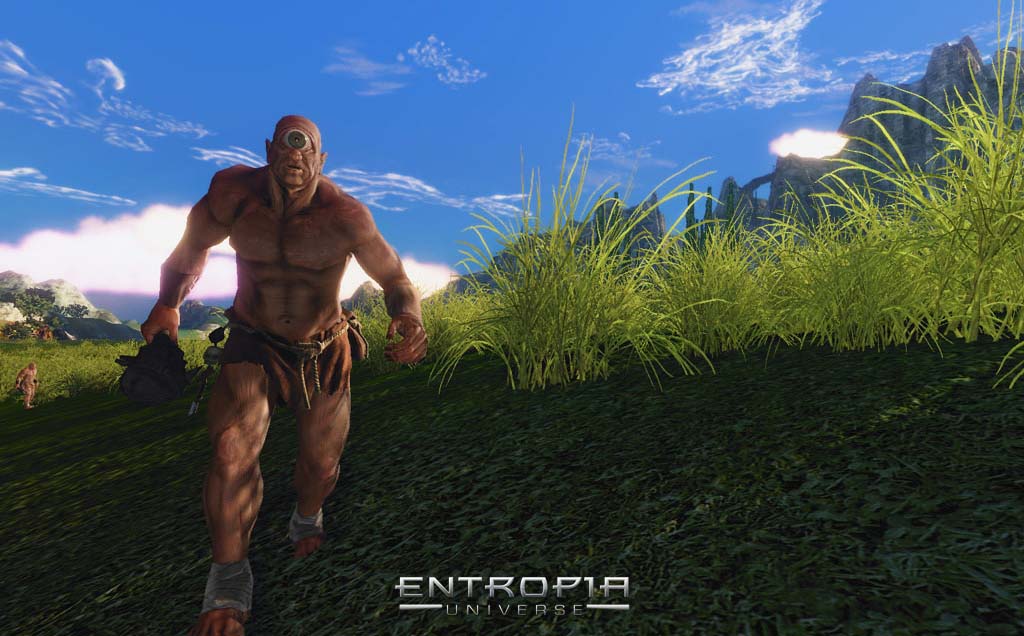
There's not really an engaging game to play here: it really is all about the money.
My first foray into Entropia began with a variation on a timeless mantra I once heard in a business owners' talk years ago. "The most common investment, one that almost all colonists make, is in the avatar itself," a generic NPC named Sarah Tergus tells my freshly-created character while running through the basics of the game. Humans came to Calypso, colonization against "horrible" enemies was rough, now there's a "sophisticated market economy," and don't forget the Deposit Center to convert a bunch of cash into PED.
Outside in the starting area, I meet Mr. Yoshida, who needs me to run errands. "Not a day goes by without Jimmy, the maintenance technician, weeping over his workload," he tells me, which is hilariously on the nose for a real cash economy game.
Like most gacha games, there's a notification box at the top of the screen that gives you updates on what other people are earning. As I'm rudely attacked by a Daikiba Cub, perhaps Entropia wants me to be comforted by the fact that someone named Harry Hoob Hoobler has just made 56PED ($5.60) by killing a Sonic Squid Stalker. I had to use the only PED I earned (all 10 cents of it) not long ago for a quest, and given that I'm not prepared to spend a penny on this game, it's no surprise that I'm broke.
There is no real narrative in Entropia—a blessing that MindArk is self-aware enough to know that spending time and money on an engaging story wouldn't be cost-effective for players who are here to get rich or die trying. MindArk's site does have a section on responsible gaming, which includes a reminder that you can create a support case to change your deposit limits—the kind of reminder you'd see at a casino or a bookie's. When I try to talk to a couple of other people in the starting area, one ignores me and another just gives me a smiley face.
Visiting this vestige of old-school cash economy gaming, it's easy to see why blockchain technology and NFTs have taken hold of a very specific sector of the gaming industry. It is frankly astounding that Entropia Universe, a game that still runs on CryEngine2, is capable of attracting new players to its aggressively generic, storyless world. There's not really an engaging game to play here: it really is all about the money.
MindArk does now have a deal with Epic Games to use Unreal 5 for future content, and its promise to remain a "bleeding-edge virtual world" while "pioneer[ing] development of the world's leading real-cash economy MMORPG" likely means today's trends like cryptocurrency and NFTs will pop up eventually. It's a reminder that nothing has changed about human nature under capitalism since Entropia Universe issued its first PED—we've simply found more efficient ways to get more people involved.
Buying and selling virtual real estate on a decentralized ledger today is simply an extension of what MindArk did nearly 20 years ago, and it's depressing as hell. Even the metaverse ties in: In 2019, MindArk announced that it was working on a way to imbue virtual avatars with real human consciousness so that the mind could live on in Entropia.
"If I have to live forever, would I want it to be in Entropia? Because I'm not sure it would be on this planet, and most game worlds are even more terrifying," points out Massivelyop's Bree Royce. But if we're making a metaverse where anything is possible including sustaining an immortal mind, why on earth would we want to replicate the same financial rat-race drudgery that has defined so much of our real world?
While MindArk hints that there are "exciting changes" coming to Entropia Universe in the near future, I'll bet you 0.1PED those changes revolve around a three-letter acronym that's already done much damage to divide artists and creators with scams and stolen artwork. One might think of David "Deathifier" Storey and wonder what really happened to his repo'd properties in a game that took up substantial resources in his life.
From my visit to Calypso, I can safely say I have never played a game so streamlined toward capital-m Money. Going back in time to Entropia Universe, it feels like we missed an important lesson for the coming decade of games—one that's probably too late to learn now.
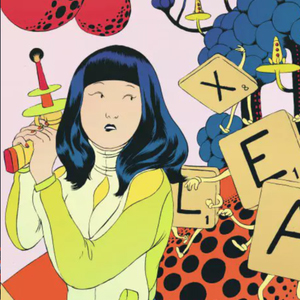
Alexis Ong is a freelance culture journalist based in Singapore, mostly focused on games, science fiction, weird tech, and internet culture. For PC Gamer Alexis has flexed her skills in internet archeology by profiling the original streamer and taking us back to 1997's groundbreaking all-women Quake tournament. When she can get away with it she spends her days writing about FMV games and point-and-click adventures, somehow ranking every single Sierra adventure and living to tell the tale.
In past lives Alexis has been a music journalist, a West Hollywood gym owner, and a professional TV watcher. You can find her work on other sites including The Verge, The Washington Post, Eurogamer and Tor.
